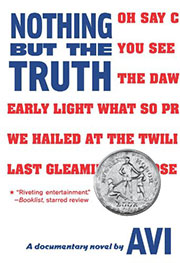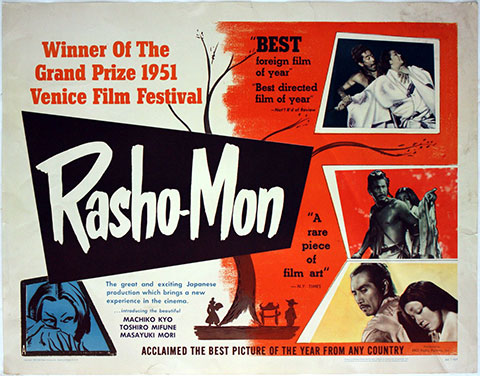When I began as writer, I wished to be a playwright. Growing up in New York City meant I could and did go to a lot of plays. (It was vastly cheaper to go to the theatre in those days.) In any case, one of the plays I saw was a theatrical adaptation of the Japanese film, Rashomon. It proved to have an enormous impact on me.
Simply put, Rashomon tells a rather violent story, but most importantly, it tells it in different versions, as experienced differently by the main characters. The outline of the story always remained the same, but the details, motives, some of the events as well as experiences were different, sometimes radically so.
Quite simply, it changed my way of looking at the world, offering a vastly more complex and (yes) more interesting way of understanding people. It taught me that no two people ever experience anything—even a shared moment—in the same way.
 Perhaps this is the origin of my Nothing but the Truth.
Perhaps this is the origin of my Nothing but the Truth.
Of course, this kind of thinking, looking at the world through multiple lenses, has immense value for a writer. The moment you accept the notion that everyone experiences everything in a unique way open endless possibilities for narrative and understanding. As a character in my forthcoming, Catch You Later, Traitor says, “Pete, nothing is simple. Know that and you know half the world’s wisdom.”
It is also not a bad way—if I may suggest it—of being part of the world.

1 thought on “Multiple lenses”
Trying to understand why a person thinks the way they do, or acts the way they do helps a lot when you run into anger, stubbornness or pettiness. It doesn’t solve the problem but it makes life easier.